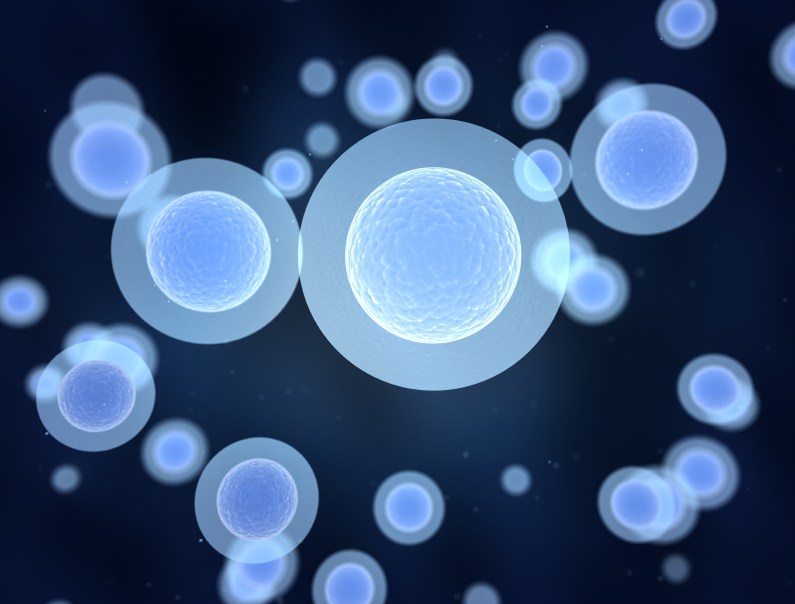While some people, although they are disappointed by the limits of embryonic stem cells, persist in asking for the legalisation of cloning, the research on adult stem cells still progresses.
Amniotic Liquid
Pr de Coppi and Atala (Institute for regenerative medicine at Wake Forest University, North Carolina) publish on Nature website, the discovery of a new source of pluripotent stem cells in human amniotic liquid1.
Pluripotent stem cells
These cells, which express at the same time genes which characterize embryonic stem cells and adult stem cells, are not only easy to obtain and cultivate but also capable to differentiate into numerous functional adult tissues and do not raise problem as they do not require the embryo destruction. These cells are genetically and phenotypically stable after hundreds of divisions, and are not oncogenic. Researchers succeeded in generating in vitro muscles, fat, bones, blood vessels, nerve cells and liver cells. For Anthony Atala, “we hope these cells will offer a precious resource for tissue repair and for synthesis organs”.
Laure Collombet, an Inserm specialist in stem cells in Paul Brousse hospital (Villejuif) believes these works seem persuasive. Collection strategies of amniotic liquid remain to be set up.
Cardinal Javier Lozano Barragan, president of the Pontifical Council for the Pastoral health care, is glad of “this very significant and ethically admissible step forward”. He recalled, “The Church is always ready to welcome the real scientific advances, in other words those which do not endanger or manipulate life”.
1. Isolation of amniotic stem cell lines with potential for therapy – Paolo de Coppi, G. Bartsch, M. Minhaj Siddiqui, Tao Xu, Cesar C Santos, Laura Perin, Gustavo Mostoslavsky, Angéline C Serre, Evan Y Snyder, James J. Yoo, Mark E Furth, Shay Soker and Anthony Atala, published online Nature 7/01/ 2007.

